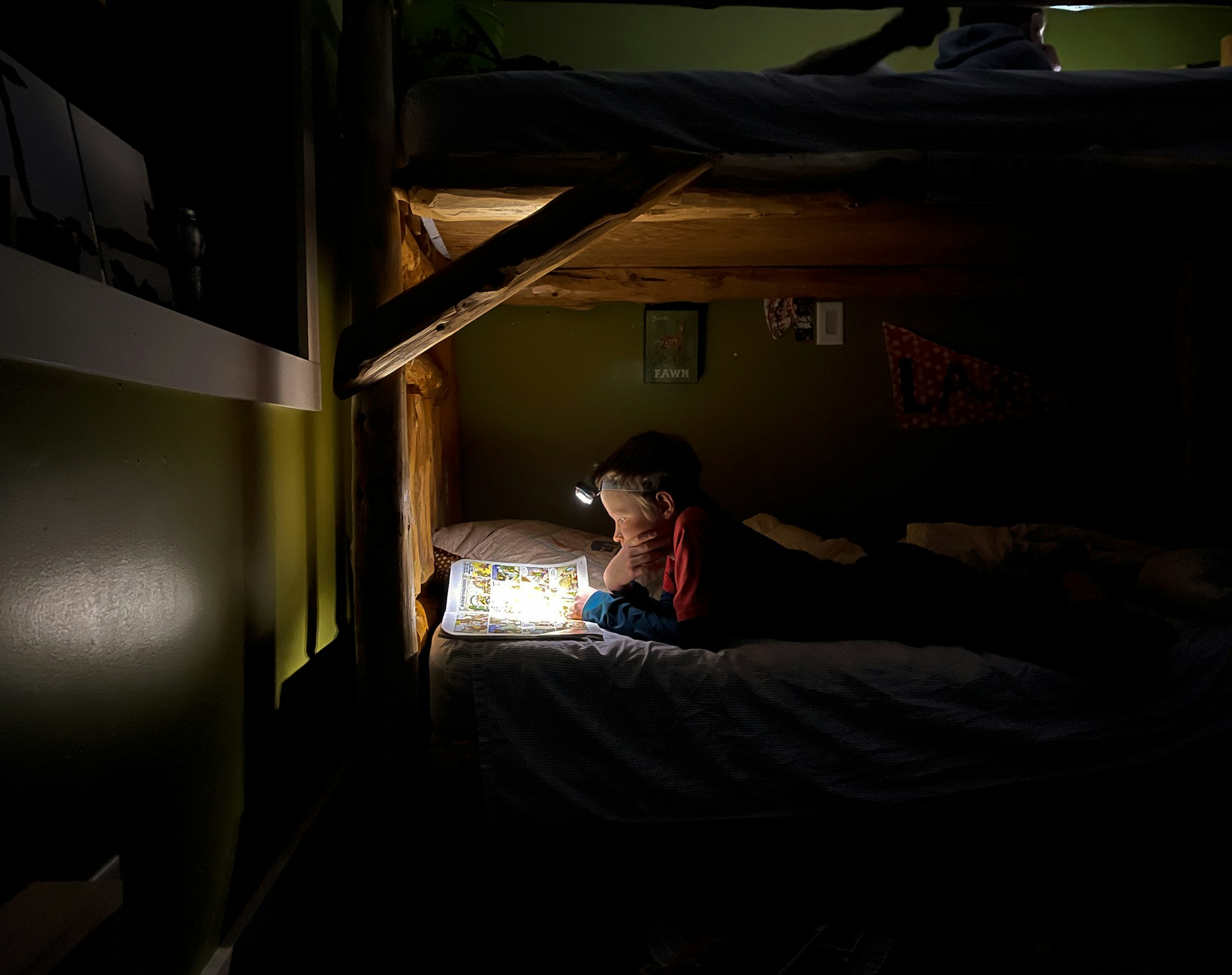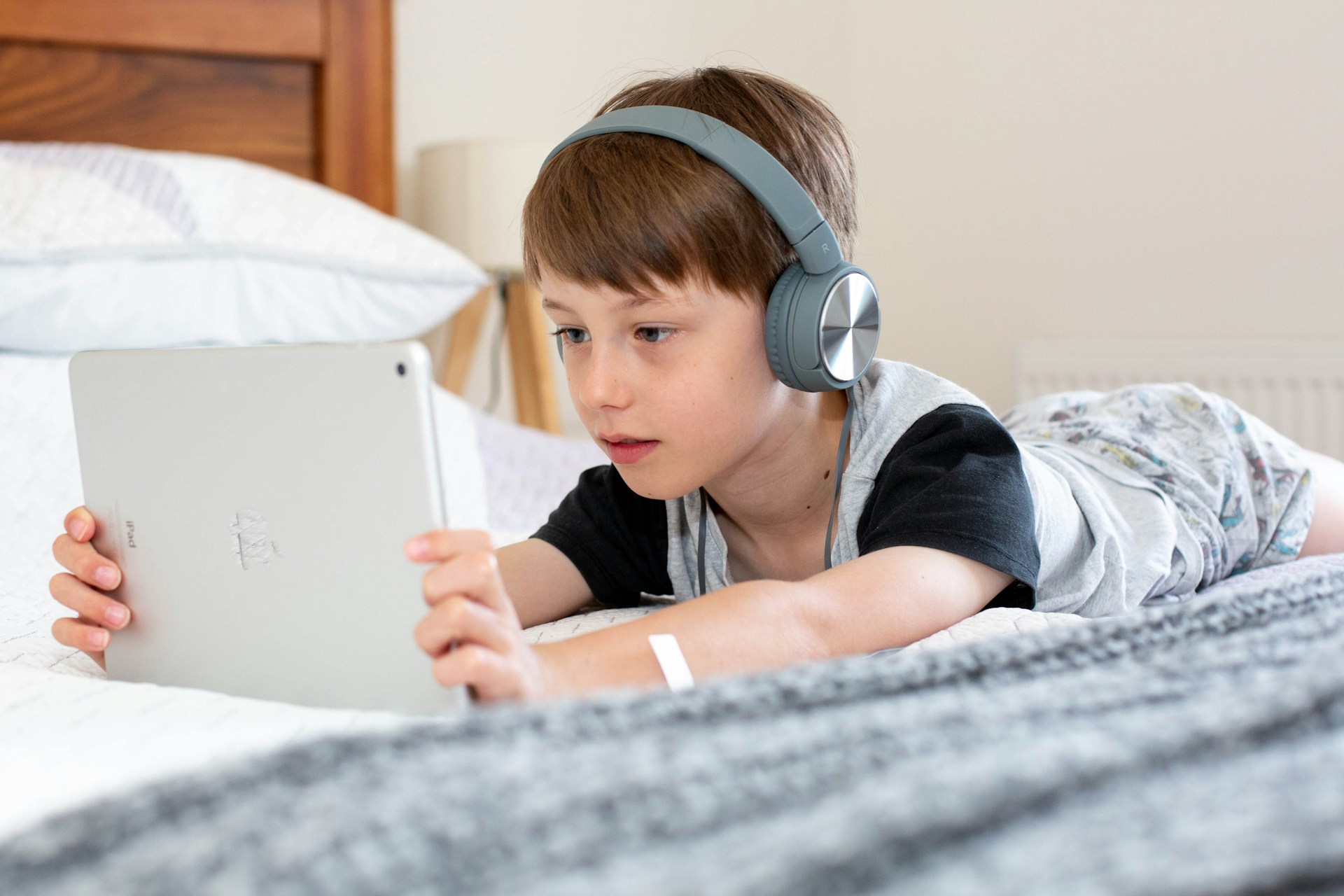Managing Childhood Stress
People don’t often think of kids being stressed out, but they experience pressure and triggering moments like everyone else. Especially with the start of a new school year where academic success and fitting in socially are at the top of their minds. Just like adults, they need to decompress sometimes. Here are 20 things you can do to help your child chill out after school.
 Photo by Tima Miroshnichenko on Pexels
Photo by Tima Miroshnichenko on Pexels
1. Encourage Outdoor Play
Whether it’s taking part in an organized sport or playing tag with friends, being active outside releases stress-relieving endorphins and distracts your kids from their worries. Fresh air reduces hormones associated with anxiety and replaces them with ones that help them feel happy and calm.
 Photo by olia danilevich on Pexels
Photo by olia danilevich on Pexels
2. Prepare a Healthy After-School Snack
Preparing a thoughtful healthy snack for your child when they come home from school is a great way to make them feel loved and cared for. Sit with them as they eat it and allow them to unpack their day.
 Photo by Hillshire Farm on Unsplash
Photo by Hillshire Farm on Unsplash
3. Encourage Communication
Communicating honestly and openly and listening intently will encourage your child to release some of their stress through conversation. It’s important to make time for this every day, especially if you notice signs of stress.
 Photo by Kelli McClintock on Unsplash
Photo by Kelli McClintock on Unsplash
4. Take Them For Nature Escapes
Being in nature is incredibly rejuvenating and cleansing for you and your child. Take them away from the over-stimulation of everyday life and de-compress in nature. Even as little as a 90 minute walk in the park has been shown to reduce activity in the part of the brain that produces negative thoughts.
 Photo by Maël BALLAND on Unsplash
Photo by Maël BALLAND on Unsplash
5. Prioritize Family Dinners
It can be hard when everyone is busy in their own lives, but try to prioritize family dinners at least three nights a week. It’s great for bonding, reducing feelings of isolation, and allowing you to check in with each other.
 Photo by National Cancer Institute on Unsplash
Photo by National Cancer Institute on Unsplash
6. Be Physically Affectionate
Sometimes it’s hard to be affectionate, particularly if your kid is in their angsty teenager phase. However, things like hugging have been linked to a reduction in the stress hormone cortisol and can do wonders for reducing pain, fear, and depression.
 Photo by Eye for Ebony on Unsplash
Photo by Eye for Ebony on Unsplash
7. Encourage Them To Take Study Breaks
Encourage your kids to take breaks from homework to ensure they don’t burn out. Studies have shown taking short breaks actually helps productivity.
 Photo by Andrew Neel on Unsplash
Photo by Andrew Neel on Unsplash
8. Teach Relaxation Techniques
When your child is stressed, their body releases hormones triggering an increased heart rate and blood pressure. Relaxation techniques like meditation, deep breathing exercises, and mindfulness mitigate the body’s stress reaction and can help your child cope with triggers.
![]()
9. Encourage Hobbies
Allowing time for your child to do the things they enjoy like playing an instrument or reading will provide stress relief and allow them to return to their problems with a fresh perspective. It also gives them some “me” time and encourages personal growth.
 Photo by Laith Abuabdu on Unsplash
Photo by Laith Abuabdu on Unsplash
10. Create a Relaxing Bedtime Routine
Having a consistent family bedtime routine that prioritizes relaxing activities and sets a cut-off time for school work encourages balance and sets the stage for a good night’s sleep. Creating these habits early will help your child in the long run.
 Photo by Hans Isaacson on Unsplash
Photo by Hans Isaacson on Unsplash
11. Limit Screen Time
Too much screen time causes overstimulation sometimes leading to impulsive and aggressive behavior. When your kid is looking at a screen all day their brain is in a state of chronic stress. Make sure to limit screen time and encourage them to go outside instead.
 Photo by Emily Wade on Unsplash
Photo by Emily Wade on Unsplash
12. Organize Social Time
One of the best ways to de-stress is to have some fun with friends. Organizing playdates for them or encouraging them to do so will help boost their happiness and decrease feelings of loneliness.
 Photo by Austin Pacheco on Unsplash
Photo by Austin Pacheco on Unsplash
13. Teach Positive Affirmations
Positive self-talk like “I am enough,” and “I am loved” regulates the emotional centers in the brain and reduces our body’s reactions to triggers. Teach your kids to replace their negative thoughts with positive affirmations so they can manage their stress better.
14. Laugh Together
Watching a funny show or telling jokes can lighten your child’s mood by increasing endorphins and reducing the release of cortisol. It also encourages muscle relaxation and stimulates circulation.
 Photo by Sebastián León Prado on Unsplash
Photo by Sebastián León Prado on Unsplash
15. Give Supportive Pep Talks
When you’re a kid, the smallest thing can feel like the end of the world. Your supportive words as a parent can help them put their feelings in perspective, boost their confidence, and show them your belief in them.
16. Encourage Sleep Hygiene
We all know how important sleep is for our cognition and mental health. Inadequate sleep can cause unpredictable mood swings, overreactions, and outbursts so make sure to stress early on the importance of a good night’s rest.
 Photo by Annie Spratt on Unsplash
Photo by Annie Spratt on Unsplash
17. Make Time For Fun
Sure, school and grades are important but don’t forget about fun. Isn’t that a big part of what having a childhood is all about?
 Photo by samaraagenstvo feeria on Pexels
Photo by samaraagenstvo feeria on Pexels
18. Introduce Time Management Tools
As adults, we know how important time management and organization is to reducing stress. Get your child familiar with the wealth of tools available that will help them form good habits early on.
 Photo by Igor Starkov on Unsplash
Photo by Igor Starkov on Unsplash
19. Be Understanding
We all want our children to do well but set realistic expectations for your child’s academic success. Know that they won’t be perfect in every area and don’t put too much pressure on them.
 Photo by Kindel Media on Pexels
Photo by Kindel Media on Pexels
20. Manage Your Own Stress
If you can’t balance your own emotions, how do you expect your kids to? Children often take cues from the adults in their lives so make sure you’re practicing what you preach and managing your own stress.










